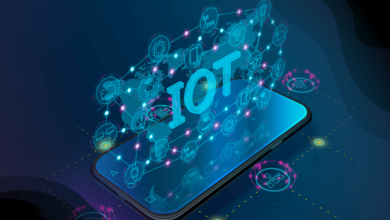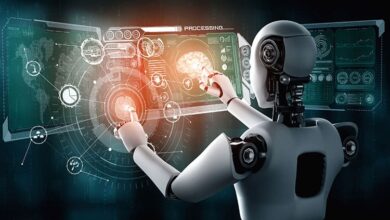BetterThisTechs Article Explores Emerging Tech Trends

Hey there! Have you ever wondered how technology keeps getting better and better? It’s not just about the latest gadgets or apps—it’s about how these advancements are transforming our everyday lives. Welcome to our journey into the world of “Better This Techs,” where innovation isn’t just a buzzword but a driving force behind positive change.
I’m excited to take you on a tour through the evolution of technology and its impact on our world. From the early days of computers to today’s AI-powered wonders and sustainable energy solutions, “Better This Techs” are shaping how we live, work, and interact.
In this article, we’ll explore fascinating case studies about BetterThistechs article where technology isn’t just a tool but a game-changer. Imagine AI diagnosing diseases faster than ever before or renewable energy sources powering entire cities sustainably. We’ll dive into how blockchain secures transactions beyond cryptocurrencies and how virtual reality is revolutionizing everything from entertainment to education.
What does betterthistechs article talks about?
The “Better This Techs” article discusses various facets of technological advancements that are improving our lives and shaping the future. Here are the main topics covered:
Artificial Intelligence (AI)
Artificial Intelligence (AI) stands at the forefront of technological innovation, transforming various industries with its ability to analyze vast amounts of data and make autonomous decisions. In healthcare, AI is revolutionizing diagnostics through image recognition and predictive analytics, improving accuracy and efficiency in detecting diseases like cancer. Financial sectors benefit from AI-powered algorithms that enhance fraud detection, risk assessment, and personalized customer experiences. Moreover, AI-driven chatbots are reshaping customer service by providing instant responses and personalized interactions based on user behavior.
Renewable Energy Technologies
The article explores significant advancements in renewable energy technologies, focusing on solar, wind, and hydroelectric power. These technologies are pivotal in reducing dependency on fossil fuels, mitigating climate change impacts, and fostering sustainable development. Innovations such as more efficient solar panels, advanced wind turbine designs, and grid-scale energy storage solutions are enhancing energy generation and distribution capabilities worldwide. By harnessing natural resources in environmentally friendly ways, “Better This Techs” are accelerating the global transition to cleaner energy sources.
Blockchain Technology
Beyond its association with cryptocurrencies like Bitcoin, blockchain technology is highlighted for its potential applications across diverse sectors. Its decentralized and transparent nature makes it invaluable in ensuring secure transactions, improving supply chain management, and verifying digital identities. Blockchain enhances trust and accountability by providing an immutable record of transactions, thereby reducing fraud and increasing efficiency in business operations. Industries from finance to healthcare are exploring blockchain solutions to streamline processes, enhance data security, and enable new business models based on decentralized applications (dApps).
Virtual Reality (VR) and Augmented Reality (AR)
Virtual Reality (VR) and Augmented Reality (AR) are reshaping how individuals interact with digital content and their physical surroundings. In entertainment, VR immerses users in virtual worlds for gaming and interactive storytelling experiences. AR overlays digital information onto the real world, enhancing training simulations in industries such as manufacturing and healthcare. “Better This Techs” are advancing VR and AR technologies with improved hardware capabilities, realistic graphics, and enhanced user interfaces, making them more accessible and applicable across various fields beyond entertainment.
Smart Home Technologies and Wearables
The integration of Internet of Things (IoT) devices in smart homes is enhancing convenience, energy efficiency, and security. Smart home technologies controlled via smartphones or voice commands automate tasks like adjusting temperatures, managing appliances, and monitoring home security systems remotely. Additionally, wearable devices equipped with sensors track vital health metrics, monitor fitness activities, and provide real-time feedback to users. These advancements in “Better This Techs” not only improve daily living but also contribute to health management and preventive care strategies.
Ethical and Social Implications
While “Better This Techs” bring numerous benefits, they also raise ethical and social concerns. Issues such as data privacy, cybersecurity threats, and the ethical use of AI algorithms are critical considerations in the development and deployment of advanced technologies. Ensuring equitable access to technological benefits and addressing digital divides are essential for mitigating socioeconomic disparities. Furthermore, regulations and ethical guidelines play a crucial role in safeguarding individuals’ rights and promoting responsible innovation that prioritizes societal well-being.
Future Trends and Challenges
Looking ahead, the article discusses emerging technologies poised to shape the future. Quantum computing promises exponential leaps in processing power, revolutionizing fields such as cryptography and scientific research. Biotechnology advancements hold potential for personalized medicine and sustainable agriculture practices. Space exploration technologies are advancing with ambitious missions aimed at exploring Mars and beyond. Amidst these innovations, sustainability remains a pressing challenge, requiring concerted efforts to develop eco-friendly technologies and mitigate environmental impacts.
Overview of Technological Advancements covered in betterthistechs article
In the realm of technological advancements, “Better This Techs” explores a diverse landscape of innovations that are reshaping our world. This article delves into how these developments are enhancing various aspects of our lives.
Biotechnology
Biotechnology innovations are highlighted for their transformative impact on healthcare, agriculture, and environmental sustainability. Advances include genetic engineering techniques like CRISPR-Cas9, which enable precise gene editing for disease treatment and crop improvement. Biotechnological applications also extend to biofuels, biodegradable materials, and environmental remediation technologies, contributing to a more sustainable future.
Internet of Things (IoT) Applications
The Internet of Things (IoT) revolutionizes connectivity by interconnecting everyday devices and systems through the internet. “Better This Techs” explores IoT applications in smart cities, where interconnected sensors and data analytics optimize urban planning, transportation systems, and resource management. IoT-enabled devices enhance efficiency in industrial automation, healthcare monitoring, and agricultural precision farming, fostering smarter and more responsive environments.
Advanced Materials and Nanotechnology
Advancements in materials science and nanotechnology are driving innovations in manufacturing, electronics, and healthcare. “Better This Techs” covers developments such as graphene-based materials, which offer unparalleled strength, conductivity, and flexibility for applications in electronics and energy storage. Nanotechnology applications include targeted drug delivery systems, advanced coatings for medical devices, and environmental sensors with high sensitivity and selectivity.
Robotics and Autonomous Systems
The integration of robotics and autonomous systems is transforming industries ranging from manufacturing and logistics to healthcare and space exploration. “Better This Techs” explores robotic automation in manufacturing processes, enhancing precision, efficiency, and scalability. Autonomous vehicles and drones are revolutionizing transportation and logistics with applications in delivery services, agriculture, and disaster response, demonstrating advancements in navigation, obstacle avoidance, and real-time data processing.
Green Technologies and Circular Economy
Technological innovations supporting sustainability efforts and the circular economy model are critical topics in “Better This Techs.” Green technologies include advancements in water purification, air quality monitoring, and renewable energy storage solutions. Circular economy practices focus on minimizing waste, promoting recycling, and designing products for longevity and reusability, thereby reducing environmental impact and conserving natural resources.
Human-Machine Interfaces and Augmentation
Advances in human-machine interfaces and augmentation technologies are enhancing interactions between humans and machines. “Better This Techs” explores developments such as brain-computer interfaces (BCIs), which enable direct communication between the brain and external devices for assistive technologies and neuroprosthetics. Augmented reality interfaces are evolving to provide intuitive interactions in industrial settings, remote collaborations, and immersive training simulations, bridging the gap between physical and digital worlds.
Cybersecurity and Digital Resilience
Given the increasing reliance on digital technologies, cybersecurity and digital resilience are crucial areas of focus in “Better This Techs.” The article addresses strategies for safeguarding data integrity, protecting against cyber threats, and enhancing resilience against cyberattacks. Innovations in cybersecurity include AI-driven threat detection systems, blockchain-based security frameworks, and secure coding practices to mitigate vulnerabilities in software and network infrastructure.
Case Studies of Revolutionary Technologies in betterthistechs article

These case studies illustrate how revolutionary technologies are reshaping industries and everyday life, driving efficiency, sustainability, and innovation across various sectors as discussed in the “Better This Techs” article.
1. Precision Agriculture Technologies
Precision agriculture utilizes advanced technologies such as satellite imagery, drones, IoT sensors, and AI to optimize farming practices. These technologies enable farmers to monitor crop health, soil conditions, and weather patterns with unprecedented accuracy. For example, drones equipped with multispectral cameras can capture high-resolution images of fields, providing insights into crop health indicators like water stress or nutrient deficiencies. IoT sensors embedded in the soil measure moisture levels and nutrient content, allowing farmers to apply fertilizers and irrigation precisely where needed, minimizing waste and maximizing yield.
AI algorithms analyze vast datasets collected from these sensors and images, providing actionable recommendations for planting schedules, pest management strategies, and harvesting times. This integration of technologies not only enhances agricultural productivity and profitability but also promotes sustainable farming practices by reducing environmental impact through optimized resource management.
2. 3D Printing in Healthcare
3D printing, also known as additive manufacturing, has revolutionized the healthcare industry by enabling the production of customized medical devices, prosthetics, and even human tissue. In “Better This Techs,” the article explores how 3D printing technology allows medical professionals to create patient-specific implants and surgical instruments tailored to individual anatomies.
For instance, surgeons can use 3D printing to produce models of complex anatomical structures from patient scans, allowing for precise pre-operative planning and simulation. Custom prosthetics and orthotics can be manufactured quickly and affordably, improving patient comfort and mobility. Bioprinting, a specialized form of 3D printing, is advancing towards creating functional tissues and organs using bioink composed of living cells.
These advancements not only enhance patient care outcomes but also reduce healthcare costs and waiting times associated with traditional manufacturing methods. As 3D printing technology continues to evolve, its potential applications in personalized medicine and regenerative therapies promise to redefine healthcare delivery.
3. Energy-efficient Buildings and Smart Grids
The integration of energy-efficient building technologies and smart grids is transforming the way buildings consume and manage energy. “Better This Techs” discusses how advancements in building materials, insulation, lighting systems, and HVAC (heating, ventilation, and air conditioning) technologies contribute to reducing energy consumption and enhancing indoor comfort.
Smart grid technologies enable bidirectional communication between utility companies and consumers, allowing for real-time monitoring and optimization of energy usage. For example, smart meters installed in homes provide detailed insights into energy consumption patterns, empowering consumers to make informed decisions about their energy usage habits.
In addition, energy-efficient buildings incorporate renewable energy sources such as solar panels and wind turbines, coupled with energy storage systems to ensure reliable power supply and resilience against grid disruptions. These technologies not only lower greenhouse gas emissions but also contribute to achieving sustainability goals and reducing the carbon footprint of buildings and urban infrastructure.
Emerging Technologies and “Better This Techs” article
As “Better This Techs” continue to advance, the ethical implications of AI and robotics, including job displacement, privacy concerns, and the ethical use of autonomous systems, remain critical considerations. Balancing innovation with responsible deployment and regulation is essential to maximize the benefits of advanced robotics while ensuring ethical and societal considerations are addressed.
Quantum Computing
Quantum computing represents a paradigm shift in computational power and capabilities. Unlike classical computers that use binary bits (0s and 1s), quantum computers leverage quantum bits or qubits, which can exist in multiple states simultaneously due to quantum superposition and entanglement. This enables quantum computers to perform complex calculations exponentially faster than classical computers for certain types of problems.
In the context of “Better This Techs,” quantum computing holds promise for advancing fields such as cryptography, materials science, drug discovery, and optimization problems. For instance, quantum algorithms could revolutionize encryption methods, making data transmission and storage more secure against sophisticated cyber threats. In materials science, quantum simulations could accelerate the discovery of new materials with specific properties, benefiting industries from electronics to renewable energy.
While still in its early stages of development, quantum computing has the potential to drive breakthroughs in solving previously intractable problems, paving the way for transformative advancements in science, industry, and everyday technology applications.
Biotechnology and Genetic Engineering
Biotechnology continues to evolve rapidly, with advancements in genetic engineering techniques such as CRISPR-Cas9 leading the way. CRISPR-Cas9 allows scientists to edit DNA with unprecedented precision, enabling modifications to specific genes associated with genetic disorders, agricultural traits, and biomedical research.
In “Better This Techs,” biotechnology’s applications extend beyond healthcare to agriculture, environmental conservation, and industrial biotechnology. For example, genetically engineered crops can be tailored to withstand pests, droughts, and diseases, improving crop yields and food security. In medicine, CRISPR-based therapies hold potential for treating genetic disorders and developing personalized medicine approaches based on an individual’s genetic makeup.
Ethical considerations surrounding genetic engineering, including informed consent, equitable access to treatments, and potential unintended consequences, are crucial aspects discussed within the framework of “Better This Techs.” As biotechnology continues to advance, responsible innovation and ethical guidelines will be essential to harness its benefits while mitigating risks.
Advanced Robotics and AI Integration
Advancements in robotics and artificial intelligence (AI) are converging to create intelligent systems capable of autonomous decision-making and interaction with the physical world. “Better This Techs” explores how robotics, coupled with AI algorithms, are revolutionizing industries such as manufacturing, healthcare, logistics, and space exploration.
In manufacturing, collaborative robots or “cobots” work alongside human workers to automate repetitive tasks, enhance precision, and increase production efficiency. In healthcare, robotic surgeons assist in complex surgical procedures with greater precision and minimal invasiveness, improving patient outcomes and recovery times while helping orthopaedic surgeon with their operations.
AI-driven robotics also play a vital role in disaster response, exploration of hazardous environments, and autonomous vehicles. The integration of sensor technologies, machine learning algorithms, and real-time data processing capabilities enables robots to navigate unpredictable environments and make informed decisions in real-time.
Addressing Ethical and Social Implications
As technological advancements accelerate, concerns around data privacy and security have become increasingly prominent. “Better This Techs” harness vast amounts of personal data through AI, IoT, and biometric technologies, raising concerns about unauthorized access, data breaches, and potential misuse.
To mitigate these risks, robust cybersecurity measures such as encryption, secure authentication protocols, and regular audits are essential. Moreover, transparency in data collection practices and informed consent mechanisms empower individuals to make informed choices about their data use. Implementing privacy-by-design principles ensures that privacy considerations are integrated into the development of technologies from the outset.
Socioeconomic Impacts and Accessibility Considerations
While “Better This Techs” offer numerous benefits, there’s a risk of widening socioeconomic disparities. Access to advanced technologies, such as AI-driven healthcare diagnostics or renewable energy solutions, may be limited by factors like cost, infrastructure availability, and digital literacy.
To promote equitable access, initiatives such as public-private partnerships, subsidies for disadvantaged communities, and educational programs in STEM fields are crucial. Additionally, designing technologies with inclusivity in mind ensures that diverse user needs and abilities are considered, thereby reducing barriers to adoption and maximizing societal benefits.
The Role of Regulations and Ethical Guidelines in Managing Risks
Regulations and ethical guidelines play a pivotal role in ensuring that “Better This Techs” are developed and deployed responsibly. Governments and regulatory bodies must establish frameworks that safeguard consumer rights, protect privacy, and promote fair competition. Ethical guidelines, developed collaboratively with industry stakeholders and academic experts, provide a roadmap for responsible innovation and ethical decision-making.
Compliance with regulations such as GDPR (General Data Protection Regulation) in Europe and adherence to ethical principles such as fairness, transparency, and accountability are essential for building trust and fostering sustainable growth in the technology sector. Continuous monitoring and adaptation of regulatory frameworks to keep pace with technological advancements are critical to addressing emerging challenges effectively.
Information Sourcing and Accuracy Assurance in BetterThisTechs article
Ensuring the reliability and accuracy of information is paramount for BetterThisTechs. Here’s how we meticulously source and validate information to provide trustworthy content:
1. Diverse Sources and Expertise:
We gather information from a diverse range of reputable sources, including peer-reviewed journals, industry reports, academic publications, and expert interviews. This multidimensional approach ensures that our content is well-rounded and informed by a variety of perspectives.
2. Fact-Checking and Verification:
Before publishing any information, we conduct rigorous fact-checking procedures. This involves cross-referencing data points, verifying claims with multiple sources, and confirming accuracy through reliable databases or primary sources where applicable.
3. Expert Review and Editorial Oversight:
Our team includes subject matter experts who review and validate technical content related to complex technologies such as AI, blockchain, and biotechnology. Their expertise ensures that technical details are accurately portrayed and comprehensible to our audience.
4. Transparency and Attribution:
We prioritize transparency by clearly attributing sources and providing citations where necessary. This not only enhances credibility but also allows readers to delve deeper into topics of interest and verify information independently.
5. Continuous Updates and Corrections:
Technology evolves rapidly, and so does our commitment to accuracy. We regularly update content to reflect the latest developments and correct any inaccuracies promptly when identified. Reader feedback and emerging research play a crucial role in this continuous improvement process.
6. Adherence to Ethical Standards:
We adhere to ethical standards in journalism and content creation, respecting intellectual property rights, avoiding plagiarism, and ensuring balanced reporting. Our commitment to integrity guides every aspect of content production, from initial research to final publication.
7. Collaboration and Community Engagement:
Engaging with our community allows us to gather insights, feedback, and additional perspectives. Through constructive dialogue and collaboration with readers, experts, and stakeholders, we enhance the accuracy and relevance of our content.
By upholding these practices, BetterThisTechs aims to deliver reliable, insightful, and accurate information that empowers readers to understand and navigate the complex landscape of technological advancements confidently.
Future Trends and Predictions
The future of AI and machine learning holds promise for even greater advancements in automation, personalization, and decision-making capabilities. “Better This Techs” are expected to enhance AI algorithms with increased accuracy, efficiency, and adaptability across diverse applications. Predictive analytics will play a crucial role in sectors such as healthcare, finance, and marketing, enabling proactive insights and informed decision-making based on data-driven forecasts. Another platform that covers latest trends and current events is Ontpresscom.
The Potential of Quantum Computing and “Better This Techs”
Quantum computing represents a disruptive technology with the potential to solve complex problems exponentially faster than classical computers. In “Better This Techs,” quantum computing’s impact spans fields such as cryptography, material science, drug discovery, and climate modeling. As quantum computing capabilities mature, researchers anticipate breakthroughs in optimization, simulation, and artificial intelligence, ushering in a new era of computational power and innovation.
Sustainable Technologies and Their Growing Importance
In response to global environmental challenges, sustainable technologies are gaining momentum within “Better This Techs.” Innovations in renewable energy, energy-efficient technologies, circular economy practices, and green infrastructure are pivotal in mitigating climate change, reducing carbon footprints, and promoting resource efficiency.
The integration of sustainable practices into technology development and deployment is essential for achieving long-term environmental sustainability goals. As consumer awareness grows and regulatory pressures increase, businesses are increasingly prioritizing sustainability in their innovation strategies, driving demand for eco-friendly products and services.
Conclusion
BetterThisTechs article showcases how transformative technologies are reshaping our world. From AI’s precision in healthcare to renewable energy’s sustainability, each innovation offers immense potential and ethical considerations.
As we navigate advancements in robotics, quantum computing, and beyond, ensuring accessibility and addressing societal impacts remain crucial. By adhering to rigorous sourcing, accuracy, and ethical standards, BetterThisTechs aims to inform and inspire a future where technology enhances lives while fostering inclusivity and sustainability for all.




